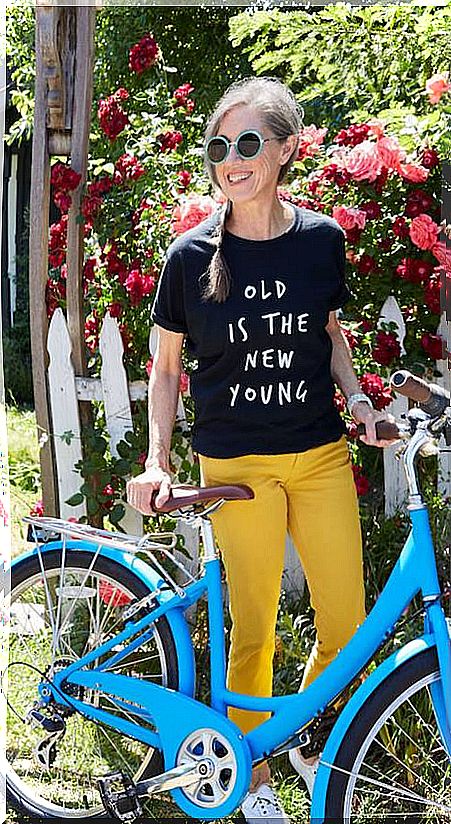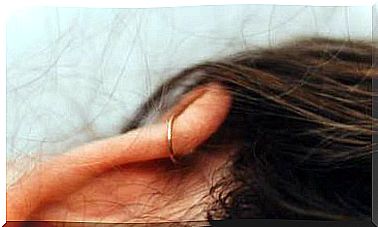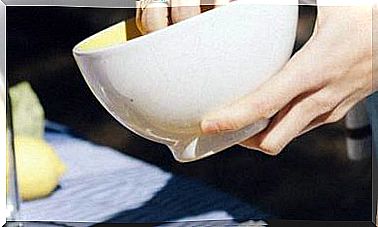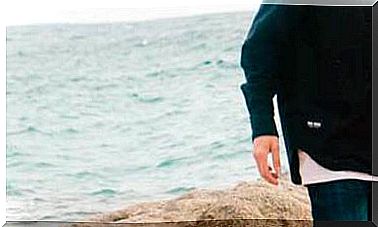How To Feel Beautiful Even Though The Years Go By?
To be a beautiful person, inside and out, recover the harmony between what you are and what you do, learn to fly, let your heart guide your mind and not the other way around.

A couple of months ago, I was in a meeting really enjoying an informal meeting with some old friends on a terrace in Granada. Suddenly, a colleague and friend who I love very much approached to greet me . She looked absolutely radiant, with a big smile and a very cool and relaxed look. It was evident that we shared the pleasure of seeing each other after such a long time.
I spoke frankly to her of the joy I felt at seeing her in a state that was surely a reflection of a good time in her life. While we told each other some things, which in passing confirmed my intuition regarding his personal good moment, some other acquaintances approached our small group. When they saw her, they all made the same comment with almost the same words:
“Hey … how young you are!”
“You’ve gotten rid of a lot of years!”
And till…
-You look very good! What have you done to yourself (suggesting some hidden aesthetic intervention).
And I felt something ugly inside me. I realized (like someone who learns something hidden) that “looking younger” seems to have become synonymous with being well, being handsome and being aesthetically acceptable. I also realized how the years carry a negative charge per se or, at least, not very appealing.
Why do we associate beauty with being young?
Perhaps that is why I maintain that it is time to review these concepts, especially because in our reality, that of all, both the advances in medicine, as well as the new treatments and the experiences of health prophylaxis, are questioning and collapsing every day the axiom that the years necessarily deteriorate us, calling into question the vice of chaining beauty to youth, as if that were an inherent and exclusive virtue of the first thirty or forty years of life.
I, who am not an example of anything, live saying that my age (I just turned sixty-five) is, without a doubt, the best of my ages and that I would not change it for any previous one (and I am certain that not be wrong).
Against this I write, and although I may accept it, I cannot help but admit that the world in which we live has developed, in the last century, a growing and worrying obsession (let me call it that) regarding the cult of physical beauty., the aesthetics of symmetry and the exaggerated appreciation of the superficially attractive.
And that would not be so disastrous if it weren’t for the fact that, in parallel and consequently, there has been a continuous movement towards the growth of a hedonistic culture that aims to extol eternal youth and instant pleasures (apparently desirable at any cost and risk), moving away ( by way of the denial or plain and simple contempt) of everything that has to do with aging, wrinkles, imperfection, introspection or spirituality.
Too many times I see men and women undergo tortuous treatments or risky operations that may remove some wrinkles or make some unwanted curve disappear, but rarely make them more beautiful. This assertion may be directly related to a “therapist” position: no process that tries to make someone what they are not can beautify them.
What is beauty?
We have been convinced that beauty is predetermined by specific characteristics or features: a small and straight nose, a flat and marked abdomen, round breasts, long and shapely legs, full lips and smooth and golden skin … But that’s not true.
I have met a number of men and women who fully responded to all the beauty stereotypes of our time and, however, they were not beautiful, they did not radiate that light, I don’t know what we like to contemplate; and I have also met many others who, even when their bodies or faces deviated greatly from what was supposedly desirable, were strikingly beautiful.
Beauty is determined by society … and it is changing
In one of Plato’s Dialogues, Hippias of Elis asks Socrates:
“Is everything useful beautiful?”
Socrates tries to answer that question by saying:
—What is effective but leads to a base end can never be beautiful, only in what is ethically acceptable can beauty be found.
In other words: only what we consider to be good or good can be recognized as beautiful. For the Greeks only the ethical is aesthetic and vice versa.
From this point of view, when something is healthy, when it has coherence, when it is good or noble, it is also inevitably beautiful and it gives us satisfaction to contemplate it, bring it closer to us, caress it and enjoy it.
And suddenly the problem changes.
What are the parameters by which we will measure what is healthy, coherent and good for ourselves and for others?
What are the things, the facts and the people that would be ethically wonderful to approach and which ones we would want and should remove from our daily reality if we want a life surrounded by beauty?
The world advises us to abide by the guidelines of a society that establishes and sustains a certain model of reality.
The Argentine poet Oliverio Girondo shows us his choice in a more than wonderful way in his book Scarecrow :
“I don’t care if women have breasts like magnolias or raisins; a peach or sandpaper complexion. I give all that an importance equal to zero. I am perfectly capable of supporting them with a nose that would win the first prize in a carrot exhibition; But yes! – and in this I am inflexible – I do not forgive them, under any pretext, that they do not know how to fly. If they don’t know how to fly, those who try to seduce me are wasting their time. “
What is this “flying” to which the poet refers? Surely it is dreaming, transgressing, learning, creating and encouraging yourself to be yourself.
How to recover our inner beauty
The proposal that the society we have built brings us closer, however, does not seem too much like the poet’s preference.
On the contrary, the world explicitly and implicitly suggests that we learn to adapt ourselves to the meek stillness of the known, stick to the symmetry of what is always the same as what always was and does not involve great unforeseen events; He proposes that we resign ourselves to surviving floating in a sea without waves or dangers and being more spectators than protagonists; advises us to abide by the guidelines of a society that establishes and sustains a certain model of reality, framed in a horizon in which one can only see what there is, what there should be and what is allowed to exist.
Of course, as consolation and encouragement , it encourages us to be successful and thus immerse ourselves in the mirage of happiness that supposedly will come to us if we have access to everything that money can buy.
Sooner or later we will realize that this safe and submissive path does not serve to conquer a life worth living.
Remember your childhood, look at your children’s, think of any little one you see around you. For a child, doing, playing and learning are one and the same, and for a while everything seems to be where it should be. Then, traditional education teaches the little ones that they have to do what must be done, that you do not play with everything (and even less with everyone) and that you have to learn only the right thing. .. And with that, they assimilate some useful things, but the freshness, the spontaneity and the genuine and fluid contact with things and with people are lost, perhaps forever.
To recover a life that marries the ethical with the aesthetic, as when we were children:
- It will be necessary to accept and enjoy what is different instead of feeling it as a threat. We must value uncertainty as a trigger and humor as stimulating.
- We will have to accept changes willingly, so that they take us away from automatism and routine. Then we will discover that harmony is more valuable than balance.
- Only by recovering the sleeping childhood will we be able to decipher the metaphorical message of the events. A message that allows us to understand the meaning of what seems insignificant, but which is ultimately what gives meaning to things.
My teacher Joseph Zinker used to say that true beauty is the reflection of inner harmony. Do you want to rejuvenate? Do you want to be a beautiful person, inside and out? Recover the harmony between what you are and what you do, learn to fly, let your heart guide your mind and not the other way around. If you do, and without realizing it, you will follow the wise advice of Ricardo Arjona in his beautiful song: you will bring life to your years, instead of just adding years to your life.









